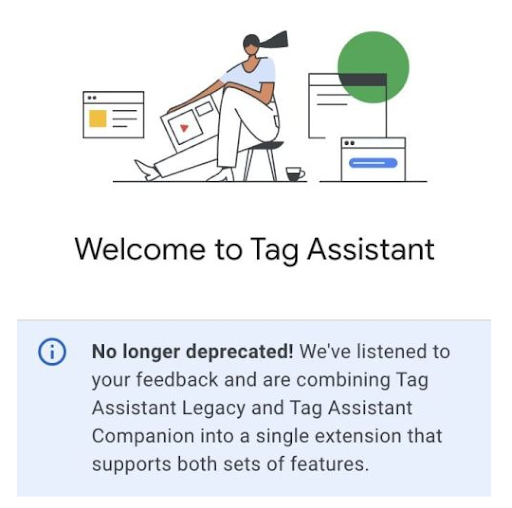Google recently reversed its decision to deprecate the Tag Assistant, a Chrome extension tool widely used by website owners, marketers, and developers to troubleshoot and verify the proper installation of Google tags. Following significant feedback from the user community, Google merged Tag Assistant Legacy and Tag Assistant Companion into a single, unified extension. This update not only preserves the tool’s accessibility but also enhances its functionality.
Surprisingly, Google made no official announcement about the update. Instead, the search engine giant’s update was brought to light by Utku Gülden, a data and analytics professional, on his LinkedIn profile. As businesses focus on core operational activities, outsourcing SEO to a search engine optimization company helps them stay updated with the latest Google announcements.
What Is Google Tag Assistant?
Google Tag Assistant is a Chrome extension tool widely used by website owners, marketers, and developers to troubleshoot and verify the proper installation of many common Google tags. This free extension plays a crucial role in detecting, validating, and debugging tags on their websites, such as:
- Google Analytics
- Google Ads
- Google Tag Manager
- Google Optimize
- Floodlight
- Google Ads Remarketing Tag
Although the general purpose of this tool is to validate and troubleshoot tags that are installed within the browser environment, it also helps:
- Display the tags that are firing on your web page
- Diagnose and rectify any tagging errors
- Provide real-time feedback on the status of each tag
Why This Update Matters
This update is vital for advertisers, as it ensures accurate tagging, which is essential for optimizing data collection and online tracking. Accurate tagging enables effective conversion tracking, precise retargeting of ads, and smarter allocation of ad spend. With this latest update, the search engine has consolidated both Legacy and Companion versions of Tag Assistant into a unified tool, streamlining the debugging process.
The updated tool reflects the company’s commitment to user feedback, providing a user-friendly interface that ensures a seamless experience with minimal compatibility issues. This upgrade aligns with evolving user needs by providing clearer insights into tag implementation, detailed error reports, and actionable recommendations to ensure tags are firing correctly across all pages. As a result, advertisers can quickly identify issues and optimize their website’s tracking setup with minimal effort, leading to better performance insights and more effective campaign strategies.
Looking Ahead
Although the tech giant had previously marked the Chrome extension as deprecated, it reversed this decision after considering user feedback. For businesses looking to make the most of this updated tool, outsourcing to professional SEO services is a practical option. By leveraging these specialized services, businesses can tap into expert knowledge to ensure the tool is implemented correctly, optimizing tracking accuracy, streamlining tag management, and improving overall campaign performance. This strategic approach helps businesses gain deeper insights, drive better results, and maintain a competitive edge in an ever-evolving digital landscape.





